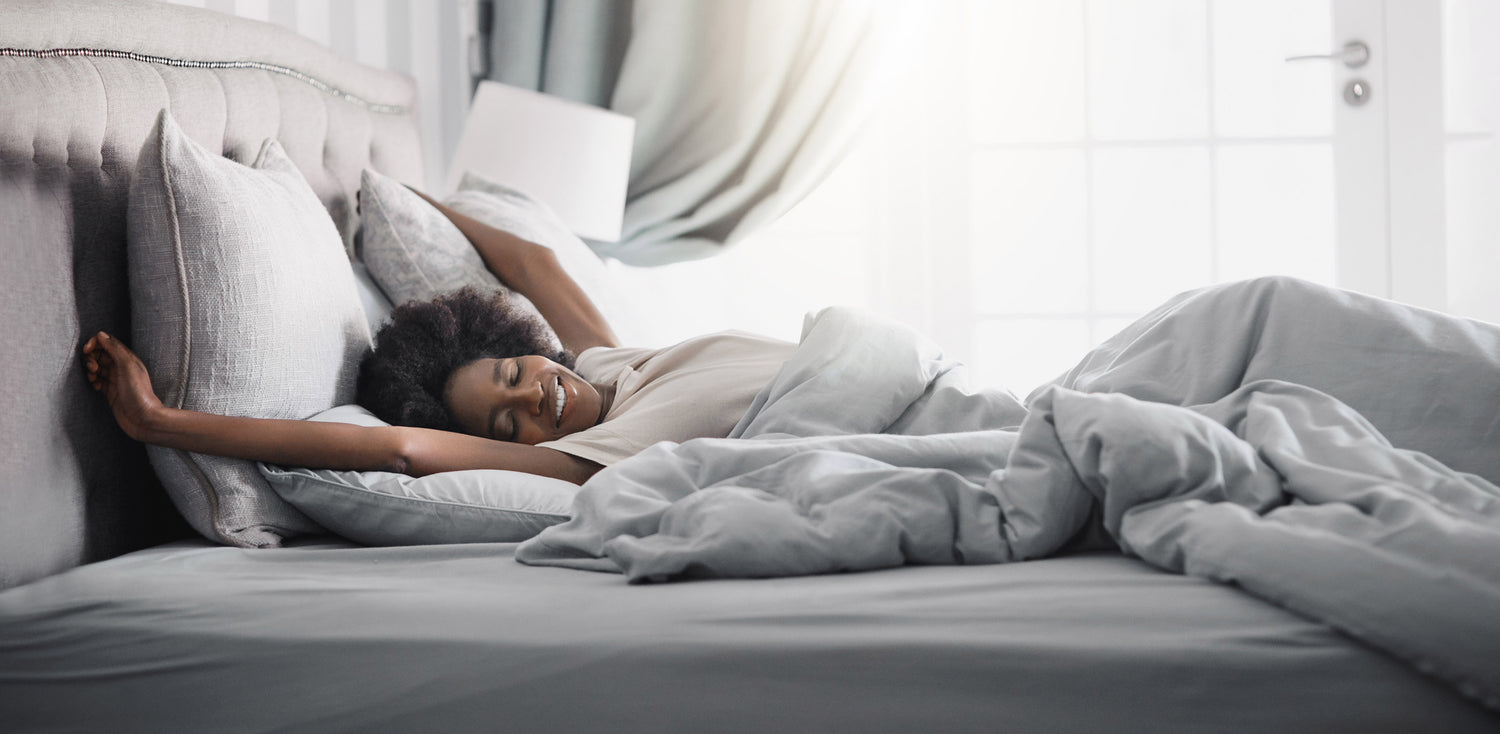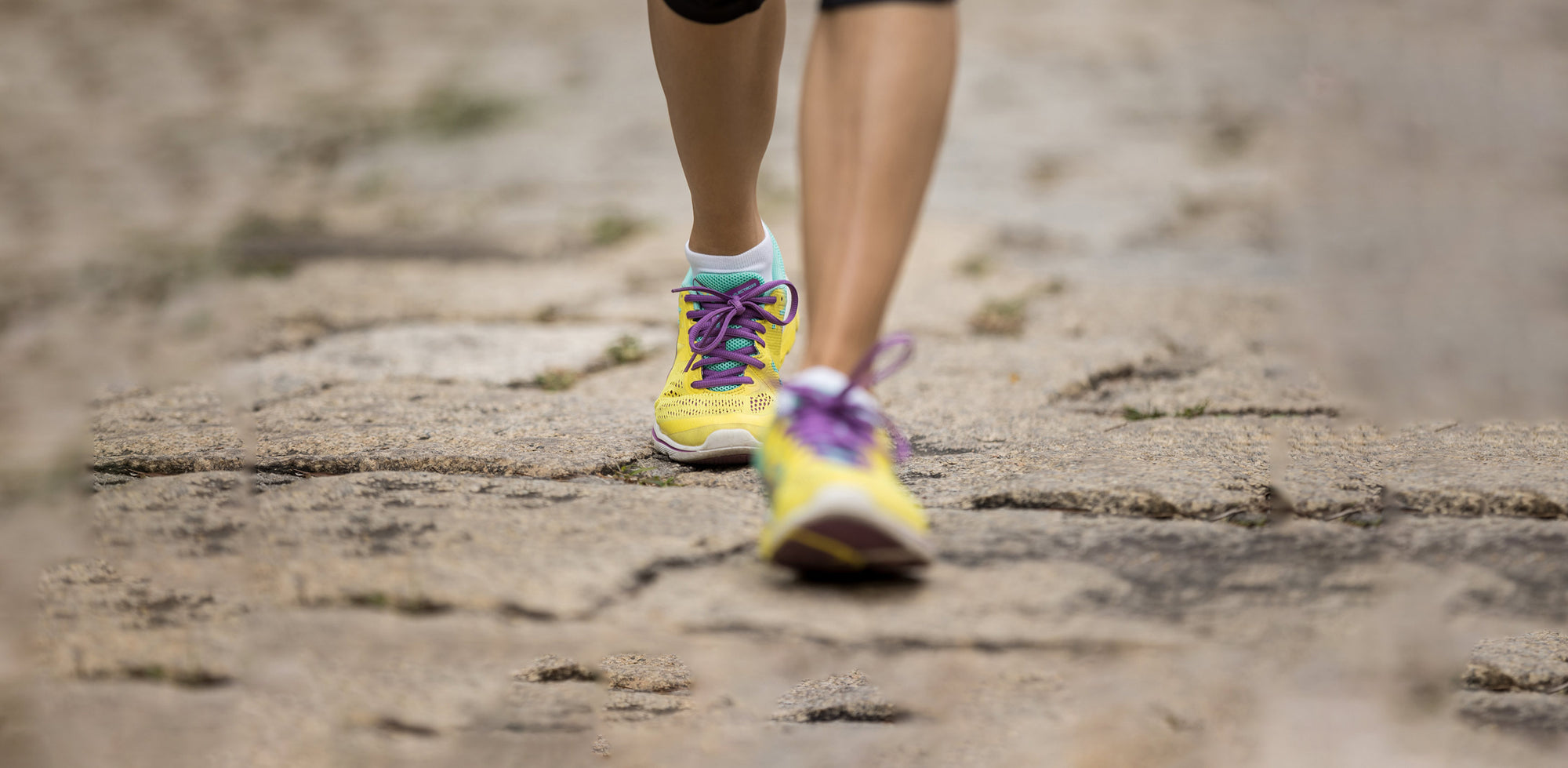Sleep is an essential function which your body needs to work properly and for you to be able to complete your day to day activities comfortably. Poor sleep or lack of sleep can counteract any benefits from your other healthy habits and some research has even found that poor sleep can be linked to hormones, brain function, metabolism and much more.
Basically, quality sleep is so important for your health and well-being and to allow you to feel your best! Sleeping well will leave you feeling energised, refreshed and it will set you up for a positive, productive day ahead.
If you are struggling with sleep, there are a few simple steps you can take to try and improve your bedtime habits naturally….
Stick To A Routine
Where possible, try and ensure you are going to bed and waking up at the same time each day. Studies have found that maintaining a consistent bedtime will promote better sleep and it will also help your body’s circadian rhythm adjust to this sleep routine.
This means your body will naturally start to feel tired around bed time and you will also find it easier to get up, as this sleeping pattern becomes a habit and your body begins to anticipate sleep during these hours. This also means being mindful of late nights or lie ins at the weekend, so try not to adjust your sleep routine by more than 1hr to avoid disrupting this rhythm.
Get Active
Not only is regular exercise good for your overall health, studies have also found it to be effective in combating insomnia. Those who exercise regularly can also find it easier and quicker to fall asleep compared to those who are not as active.
For quality sleep, you do need to avoid exercising too close to bedtime as the activity and endorphins can make you feel more energised and awake, which isn’t ideal. We would suggest exercise in the morning or day time to best support your sleep!
Be Mindful of Diet
Diet can actually play a part in your sleep quality! Going to bed very full or very hungry can hinder sleep, as well as consuming very heavy meals shortly before bedtime. Consumption of caffeine and alcohol can also have a detrimental effect on your sleep so these are best to avoid (especially before bedtime) if you are trying to improve your habits. Swapping alcohol and caffeinated drinks for more soothing options like chamomile or peppermint tea will aid relaxation and help your body to prepare for bedtime.
Create a Relaxing Environment
Creating a relaxing space to sleep in is hugely beneficial. This can be a comfortable mattress and pillows, black-out curtains, eye masks or ear plugs if noise and distractions make your sleep difficult. A clean, tidy space can also help you to relax and also you can try to reserve your bedroom specifically for sleep (so no working from home in bed!).
Turning lights off and using lower-lights such as lamps can help you prepare for bedtime, as well as reducing your use of bluelight screens 1 hour before bed (phones or tablets). Why not put your phone down and try reading? Many modern e-readers have been designed with zero blue light so they will not have a negative effect on your sleep, for anyone who prefers a digital reading experience to traditional books. Activities such as meditation or journaling can also be useful at bedtime.
Try Supplements
Alongside all of the above steps, investing in high-quality supplements like our Sleep Essentials Bundle is a convenient way to promote relaxation and support your sleep. We hand-picked 3 pure and potent products for this bundle which have been designed to support a restful night’s sleep and will also save you money if purchased together.
[product 1]If you do struggle with sleep, these simple changes are definitely a step in the right direction and allow you to promote better sleep without resorting to strong medications or investing in expensive self-help guides or tools.
If you are having serious difficulties we would always suggest speaking to your GP but if your poor sleep is still manageable, why not try these 5 steps and see if they can make a genuine difference to your bedtime?

 Beauty
Beauty
 Bone Health
Bone Health
 Brain Health
Brain Health
 Energy
Energy
 Eye Health
Eye Health
 Gut Health
Gut Health
 Hair
Hair
 Hormonal Health
Hormonal Health
 Heart Health
Heart Health
 Immunity
Immunity
 Joints
Joints
 Menopause
Menopause
 Pregnancy
Pregnancy
 Kids
Kids
 Sleep
Sleep
 Stress & Mood
Stress & Mood




















